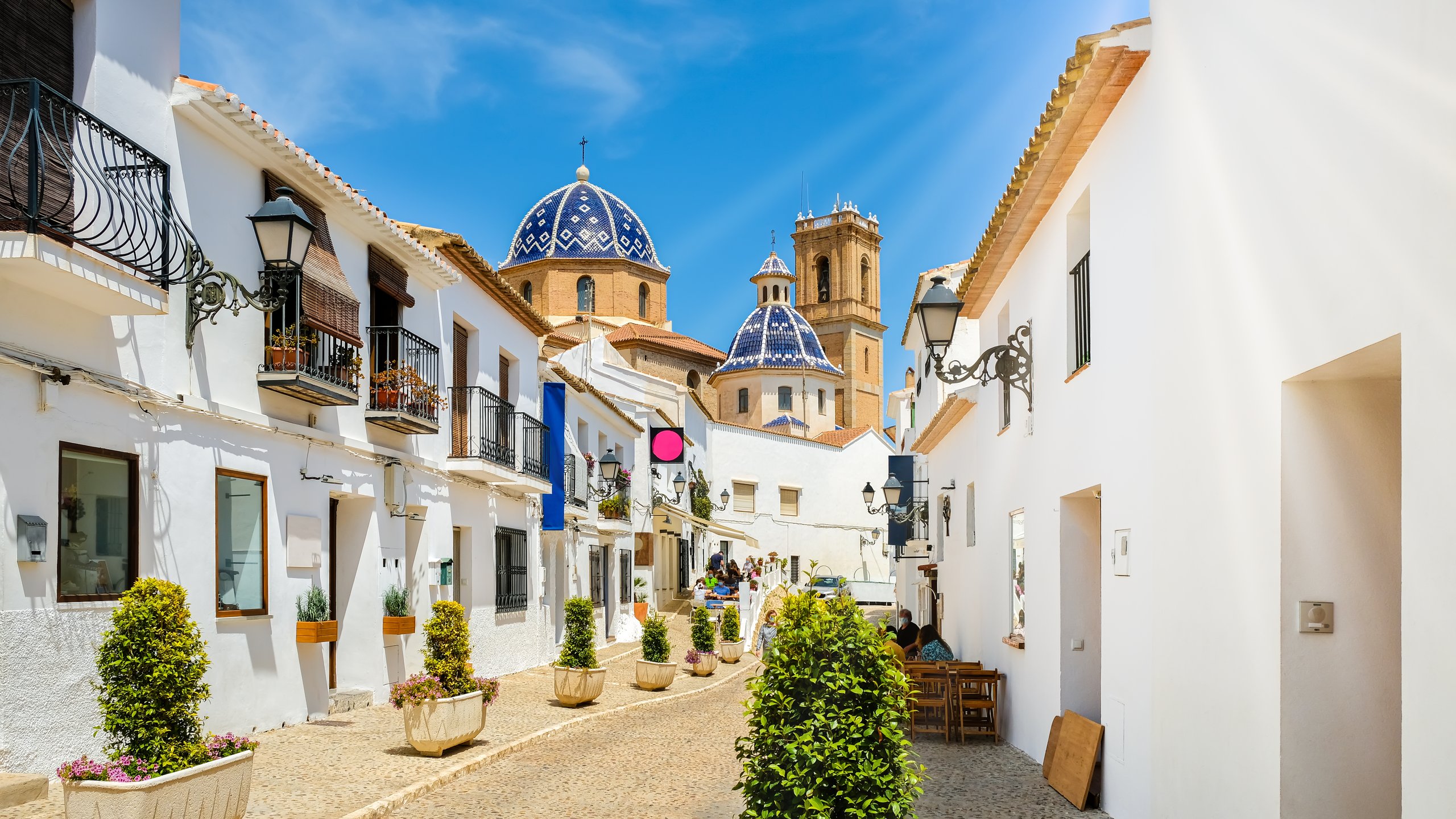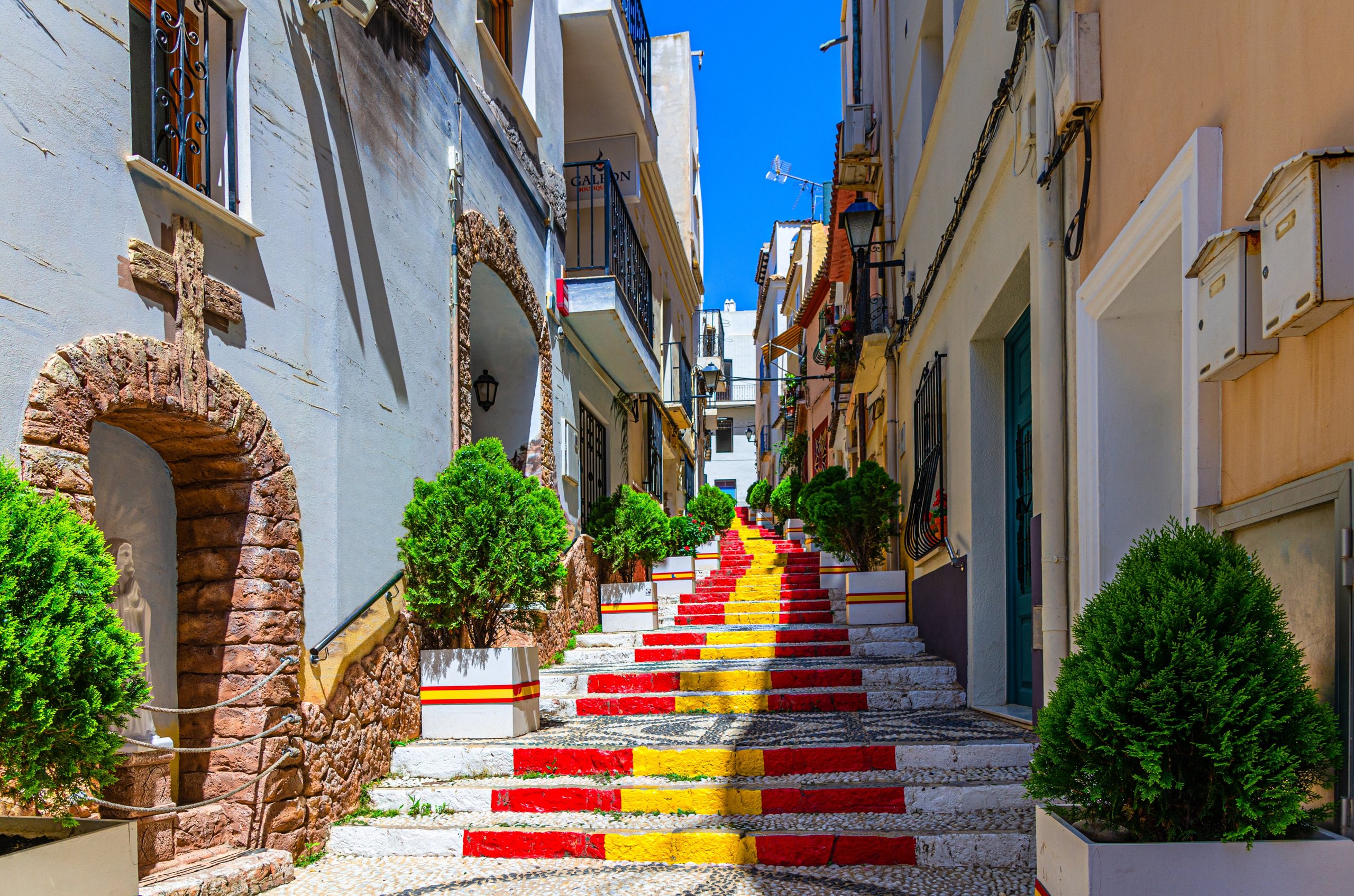Buying property in Spain isn’t always straightforward, especially when the legal system works differently to what you’re used to. That’s why it’s a smart idea to hire a solicitor in Spain early on – even before you start viewing homes.
If you’re planning to buy property in Spain, you should hire a local solicitor. Spain’s legal system has its own rules and processes – some of which may be very different to what you’re used to back home. And with recent changes to rental regulations, having professional legal support is key to making sure your purchase is secure and compliant.
Download the Spain Buying Guide
Contents
Why you need a solicitor
Your Spanish property solicitor (or abogado) will be your legal representative, ensuring that your purchase is lawful, safe and fully in your interest. Their role is to guide you through the process from start to finish. This includes reviewing contracts, confirming the seller’s legal right to sell, checking for debts or restrictions on the property, liaising with the notary, calculating and arranging payment of taxes and registering the property in your name. Without this legal support, buyers risk unpleasant surprises – anything from unpaid property taxes to illegal extensions that could lead to fines or demolition orders.
Your solicitor can also help if you’re planning a renovation or extension by confirming whether local planning permissions are available. Estate agents may not always disclose these details, especially when acting on commission, so having independent legal advice is vital.
Speak to a Spain property expert
Solicitor vs notary: what’s the difference?
Like many foreign buyers, you may be confused by the role of the notary in Spain. While the notary is essential to the purchase process, they are not your legal advisor. Their role is to witness the signing of the contract and convert it into a public deed. They ensure the sale follows Spanish law but remain neutral and do not advise you on the risks or complexities of the transaction.
Your solicitor, by contrast, works for you and you alone. They will protect your interests throughout, identify any risks and ensure you understand every part of the process. If you can’t be in Spain for completion, you can even grant your solicitor Power of Attorney to sign on your behalf at the notary’s office.
Legal due diligence explained
Your solicitor’s due diligence checks are the most critical part of the purchase process. This includes:
- Confirming who legally owns the property and their right to sell
- Checking for any charges, debts or embargoes on the property
- Ensuring the seller has paid all local taxes and community fees
- Verifying whether tenants or third-party rights exist
- Checking whether the property is subject to protected or subsidised housing rules
- For new builds and off-plan homes, checking that insurance covers structural defects
- Confirming there are no legal restrictions on selling, such as a right of first refusal
If your solicitor finds anything during this process that could affect the sale or future value of the property, they will advise you before you commit. They can also help you make a Spanish will, which we recommend you do if you own property there.
Solicitor and notary fees
You should factor legal costs into your budget, as they are a necessary part of buying in Spain. Solicitors typically charge 1-2% of the property’s purchase price. Some may agree a fixed fee for straightforward purchases.
In addition, buyers pay notary fees, which are government-regulated and usually amount to 0.2-0.5% of the declared value of the property. After the notary signs the deed, it must be registered with the Land Registry – expect to pay around €500 for this step.
Recent legal changes in Spain
Spain has introduced several legal changes that buyers need to be aware of. These include:
- Short-term rental restrictions: If you’re renting out your property, you must now get approval from the building’s homeowners association. You will also need to acquire a tourist licence, which will not be granted in certain areas.
- Rent control measures: Since 2024, annual rent increases have been capped at 3%. A new pricing index, in force from 1st January 2025, now limits increases on contracts signed after 26 May 2023. If you’re planning to rent out your property, it’s worth keeping this in mind when working out your potential earnings.
These developments reinforce why hiring a solicitor in Spain is so crucial – they will help you navigate these regulations and avoid buying in areas that may not suit your plans.

How to choose a good solicitor
There are two golden rules when choosing your solicitor. First, they must be independent of the estate agent or developer. Any solicitor they recommend should not have a financial interest in the transaction. Second, they should specialise in Spanish property law. Not all lawyers are created equal – avoid those who practise in other areas like criminal or corporate law and choose someone with property-specific experience, ideally dealing with international clients.
Check that they’re registered with the local Bar Association and have professional indemnity insurance. You may also want a solicitor who works in a firm offering related services like tax or immigration advice, especially if you’re also applying for a Spanish visa.
Dealing with language barriers
Legal documents in Spain are issued in Spanish and must be signed in Spanish. While many professionals in Spain speak English, you should never assume fluency – especially for something as critical as a property contract.
Ideally, choose a bilingual solicitor who can explain contracts and documentation in English. Some firms may assign an English-speaking paralegal to you, while the primary lawyer is Spanish. This is fine, provided everything is explained clearly and you are given official translations where needed.
Summary
Buying a property in Spain is an exciting prospect, but it’s also a complex legal transaction. Hiring a solicitor ensures that your purchase is safe, legal and tailored to your long-term goals. They will protect your interests and help you avoid costly mistakes that could derail your dream of owning a home abroad.
Don’t take unnecessary risks. Invest in expert legal advice before you sign anything or transfer funds.
FAQs about Spanish property solicitors
Hiring a lawyer to handle your property purchase in Spain typically costs between 1% and 2% of the property’s purchase price. Some solicitors may offer a fixed fee, especially for simpler transactions. This cost is well worth it for the legal protection and peace of mind they provide.
A solicitor in Spain is known as an abogado. They are qualified legal professionals who can advise and represent you in all matters related to property law. Make sure your chosen abogado is registered with the local Bar Association and has property-specific experience.
Conveyancing in Spain is generally handled by your solicitor and is usually included in their overall fee, which is around 1% to 2% of the property’s price. This covers contract review, due diligence, liaising with the notary and handling taxes and registration. Unlike in the UK, there’s no separate licensed conveyancer – it’s all done through your lawyer.
You might also like:









